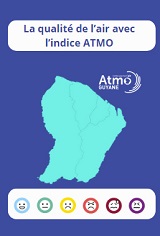Blada.com
vendredi 18 avril
Boîtes aux lettres
Courrier des lecteurs
Petites annonces
Emploi / Formation
Covoiturage
Infos citoyennes
Infos citoyennes
05/01/22
Une infirmière libérale mobilisée pour vacciner

Depuis mi-décembre, Renée-Lise Augustin, infirmière libérale à Rémire-Montjoly, vaccine à domicile. Soucieuse de protéger ses patients, elle prend le temps d’expliquer et de proposer ce service de proximité. La couverture vaccinale de sa patientèle lui procure fierté et sérénité.
L’installation rapide du variant omicron rappelle que le virus n’offrira aucune trêve aux Guyanais, en particulier aux plus fragiles. Considérée comme plus contagieuse, cette nouvelle souche accroit l’urgence vaccinale. C’est dans ce contexte que certains professionnels libéraux ont décidé de développer la vaccination à domicile, plus lourde au plan logistique, mais qui permet de toucher des patients vulnérables. Parmi eux se trouve Renée-Lise Augustin, installée à Rémire-Montjoly.
 « L’année qui vient de s’écouler a parfois été compliquée »
« L’année qui vient de s’écouler a parfois été compliquée »
La mécanique est bien rodée. Pour autant le chemin pour y arriver n’a pas toujours été facile. « J’ai d’abord choisi de me faire vacciner, pour protéger mes parents, ma famille, poursuit-elle. L’année qui vient de s’écouler a parfois été compliquée. La vaccination a été la solution pour moi. J’ai accompagné les patients qui sont des personnes fragiles et qui n’ont pas forcément un accès facile aux soins. » La patiente qu’elle vaccine ce jour-là confirme : « Il était difficile pour nous de se déplacer jusqu’au centre de vaccination de l’Encre. C’est plus simple que l'infirmière vienne chez nous. » Renée-Lise Augustin y voit un autre avantage : « L’un des gros problèmes pour la grande majorité des personnes, c’est que le vaccin est un sujet très clivant. Se faire vacciner chez soi, c’est aussi la possibilité de garder l’anonymat. Le sujet est rarement débattu avec les enfants, le reste de la famille et les voisins. »
« L’idéal serait des flacons unidose »
Mercredi matin, l'infirmière libérale est venue chercher le flacon qu’elle avait commandé, à la pharmacie des Âmes Claires. « Je prépare ma tournée la veille, explique-t-elle. Ce flacon, vite enfermé dans la glacière, contient 7 doses de vaccin et comme il ne faut rien perdre, j’ai déjà fixé les rendez-vous avec mes patients. J’essaye aussi, le plus possible, de regrouper mes visites dans les mêmes secteurs. Même si je peux conserver le vaccin durant six heures, j’enchaîne. L’idéal serait un jour d’avoir des flacons unidose pour ne vraiment rien gâcher. »
Une tournée de vaccination demande une vraie logistique. C’est pourquoi l’infirmière l’organise en dehors de ses heures de travail habituelles. Il y a aussi la partie administrative à gérer. « C’est le plus lourd. » Elle doit remplir le carnet de vaccination et, de retour à son bureau, elle enregistre son acte sur le site Ameli réservé aux professionnels de santé et imprime le QR code qu’elle délivrera le lendemain au patient, au cours d’une visite pour d’autres actes de soins.
Des réactions excessives
Au départ, « il y avait beaucoup de réticences. Je me contentais de donner l’information sur la vaccination. J’essayais surtout de défaire toutes les fake news. Les débats entre pro et antivaccin se sont montrés parfois trop compliqués. Personne ne s’y retrouvait, avec des arguments et des réactions excessives des deux côtés. » Des tensions ont ressurgi le jour où elle a été prise à partie par le fils d’une patiente. « Je lui injectais de l’insuline et il a cru que je lui faisais le vaccin. Il s’est énervé. Sa mère a réussi à le calmer. » Elle se souvient aussi d’une autre patiente, à Cayenne : « Lorsque son auxiliaire de vie lui rendait visite, elle la menaçait d’arrêter de s’occuper d’elle si elle apprenait qu’elle s’était fait vacciner. Elle cachait ses papiers de vaccination sous son matelas pour que l’auxiliaire de vie ne les trouve pas ! ».
« Aucun de mes patients ne s’est retrouvé en réanimation »
« Je n’ai pas envie que mes patients attrapent le virus », insiste Renée-Lise Augustin, fière aujourd’hui que 90% d’entre eux aient démarré voire accompli leur schéma vaccinal. « Aucun ne s’est retrouvé en réanimation. Pour mes patients qui ont d’autres pathologies, il y a eu des périodes où il était plus difficile qu’ils soient accueillis à l’hôpital. C’est là qu’il était important que je sois moi-même vaccinée, pour ne pas aggraver leur santé. Outre le relationnel, l’infirmière libérale a une très grande proximité avec le patient. Mon but est aussi de les maintenir à leur domicile. »
Renée-Lise Augustin laisse libre chacun de ses patients de se faire vacciner ou non. « Je comprends les peurs de certaines personnes. Mais, il ne faut pas se tromper de combat », souligne-t-elle. Chez ses patients, tous « ont eux-mêmes choisi d’être vaccinés ». Et de préciser, consciente, que « pour les plus réfractaires, si ce n’était pas moi qui les avais vaccinés, ils ne l’auraient sans doute pas fait. »
Cet article est issu de la Lettre pro de l’Agence régionale de santé. Vous pouvez vous y abonner en remplissant le formulaire suivant : https://forms.sbc28.com/5a8bed50b85b5350ef1cd117/t13M7zUZQi2XMq5E3DdnhQ/0WQoeDwjRXqJblCpKbLDzA/form.html
 Since mid-December, Renée-Lise Augustin, liberal nurse in Rémire-Montjoly, vaccines at home. Concerned about protecting her patients, she takes the time to explain and offer this local service. The vaccination coverage of his patients gives him pride and serenity.
Since mid-December, Renée-Lise Augustin, liberal nurse in Rémire-Montjoly, vaccines at home. Concerned about protecting her patients, she takes the time to explain and offer this local service. The vaccination coverage of his patients gives him pride and serenity.
The rapid installation of the omicron variant is a reminder that the virus will offer no relief to Guianese, especially the most fragile. Considered to be more contagious, this new strain increases the vaccine urgency. It is in this context that certain liberal professionals have decided to develop home vaccination, which is logistically heavier, but which makes it possible to reach vulnerable patients. Among them is Renée-Lise Augustin, based in Rémire-Montjoly.
 "The past year has been complicated at times"
"The past year has been complicated at times"
The mechanics are well established. However, the road to getting there has not always been easy. "I chose to get the vaccine first, to protect my parents, my family," she continues. The past year has been complicated at times. Vaccination was the solution for me. I have supported patients who are fragile people and who do not necessarily have easy access to care." The patient she vaccinated that day confirms, “It was difficult for us to get to the Ink vaccination center. It's easier for the nurse to come to our house." Renée-Lise Augustin sees another advantage in this: "One of the big problems for the vast majority of people is that the vaccine is a very divisive subject. Getting vaccinated at home is also the possibility of remaining anonymous. The subject is rarely discussed with the children, the rest of the family and the neighbors. "
"The ideal would be single-dose vials"
On Wednesday morning, the liberal nurse came to pick up the bottle she had ordered from the Clear Souls pharmacy. “I'm preparing my tour the day before,” she explains. This bottle, quickly locked in the cooler, contains 7 doses of vaccine and since nothing should be lost, I have already made appointments with my patients. I also try, as much as possible, to group my visits in the same areas. Even though I can keep the vaccine for six hours, I keep going. It would be ideal one day to have single-dose vials so as not to really spoil anything. "
A vaccination round requires real logistics. This is why the nurse organizes it outside of her regular working hours. There is also the administrative part to manage. “It’s the heaviest." She must complete the vaccination record and, back at her office, she records her act on the Ameli site reserved for health professionals and prints the QR code that she will issue the next day to the patient, during a visit to other acts of care.
Overreactions
At the start, “there was a lot of reluctance. I just gave the information about the vaccination. I was mostly trying to undo all the fake news. The debates between pro and anti-vaccine were sometimes too complicated. No one was there, with arguments and overreacting on both sides." Tensions rekindled the day she was taken to task by the son of a patient. “I was injecting him with insulin and he thought I was giving him the vaccine. He got angry. His mother managed to calm him down. She also remembers another patient in Cayenne: "When her caregiver visited her, she threatened to stop caring for her if she found out she had been vaccinated. She hid her vaccination papers under her mattress so the caregiver could not find them! ".
"None of my patients ended up in intensive care"
"I don't want my patients to catch the virus," insists Renée-Lise Augustin, proud today that 90% of them have started or even completed their vaccination schedule. “None ended up in intensive care. For my patients who have other conditions, there have been times when it was more difficult for them to be admitted to the hospital. This is where it was important that I got the vaccine myself, so as not to make their health worse. In addition to relationships, the liberal nurse has a very close relationship with the patient. My goal is also to keep them at their home. "
Renée-Lise Augustin leaves each of her patients free to be vaccinated or not. “I understand the fears of some people. But, we must not get the wrong fight, ”she emphasizes. In his patients, all "themselves chose to be vaccinated." She added, aware, that "for the more resistant, if it was not me who had vaccinated them, they probably would not have done so. "
This article is from the Professional Letter of the Regional Health Agency. You can subscribe to it by filling out the following form: https://forms.sbc28.com/5a8bed50b85b5350ef1cd117/t13M7zUZQi2XMq5E3DdnhQ/0WQoeDwjRXqJblCpKbLDzA/form.html
Raccourcis

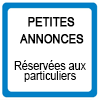
passer une petite annonce

passer une annonce de covoiturage
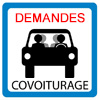

passer une annonce d’emploi

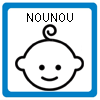
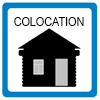

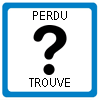
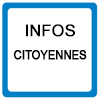
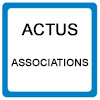
associations, postez vos actualités
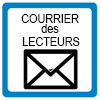
participez au courrier des lecteurs
La Guyane c’est ici
La qualité de l’Air avec
ATMO
Photothèque

Lancements 2022
Vol 259 Ariane 5



